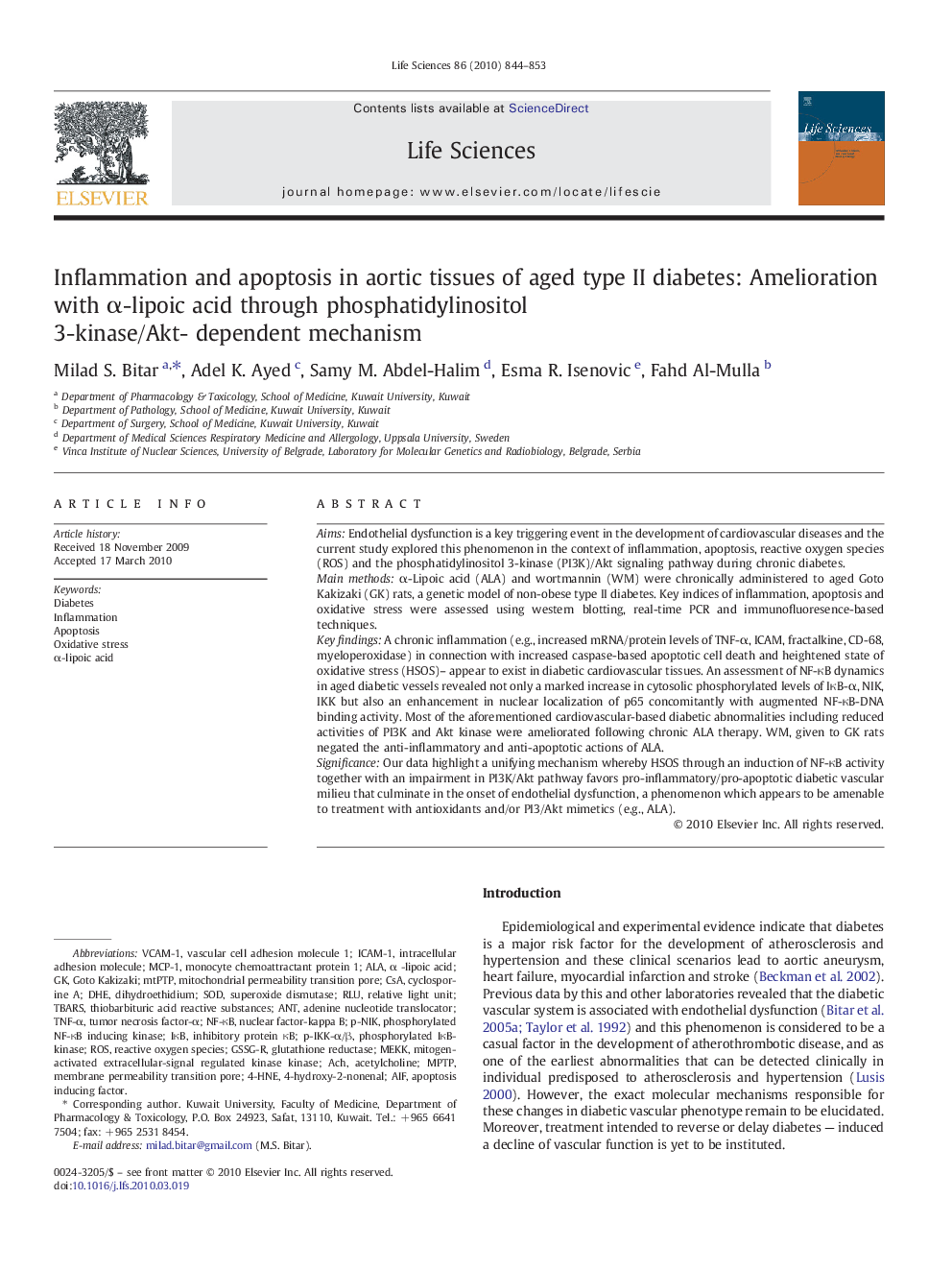| Article ID | Journal | Published Year | Pages | File Type |
|---|---|---|---|---|
| 2552006 | Life Sciences | 2010 | 10 Pages |
AimsEndothelial dysfunction is a key triggering event in the development of cardiovascular diseases and the current study explored this phenomenon in the context of inflammation, apoptosis, reactive oxygen species (ROS) and the phosphatidylinositol 3-kinase (PI3K)/Akt signaling pathway during chronic diabetes.Main methodsα-Lipoic acid (ALA) and wortmannin (WM) were chronically administered to aged Goto Kakizaki (GK) rats, a genetic model of non-obese type II diabetes. Key indices of inflammation, apoptosis and oxidative stress were assessed using western blotting, real-time PCR and immunofluoresence-based techniques.Key findingsA chronic inflammation (e.g., increased mRNA/protein levels of TNF-α, ICAM, fractalkine, CD-68, myeloperoxidase) in connection with increased caspase-based apoptotic cell death and heightened state of oxidative stress (HSOS)– appear to exist in diabetic cardiovascular tissues. An assessment of NF-κB dynamics in aged diabetic vessels revealed not only a marked increase in cytosolic phosphorylated levels of IκB-α, NIK, IKK but also an enhancement in nuclear localization of p65 concomitantly with augmented NF-κB-DNA binding activity. Most of the aforementioned cardiovascular-based diabetic abnormalities including reduced activities of PI3K and Akt kinase were ameliorated following chronic ALA therapy. WM, given to GK rats negated the anti-inflammatory and anti-apoptotic actions of ALA.SignificanceOur data highlight a unifying mechanism whereby HSOS through an induction of NF-κB activity together with an impairment in PI3K/Akt pathway favors pro-inflammatory/pro-apoptotic diabetic vascular milieu that culminate in the onset of endothelial dysfunction, a phenomenon which appears to be amenable to treatment with antioxidants and/or PI3/Akt mimetics (e.g., ALA).
